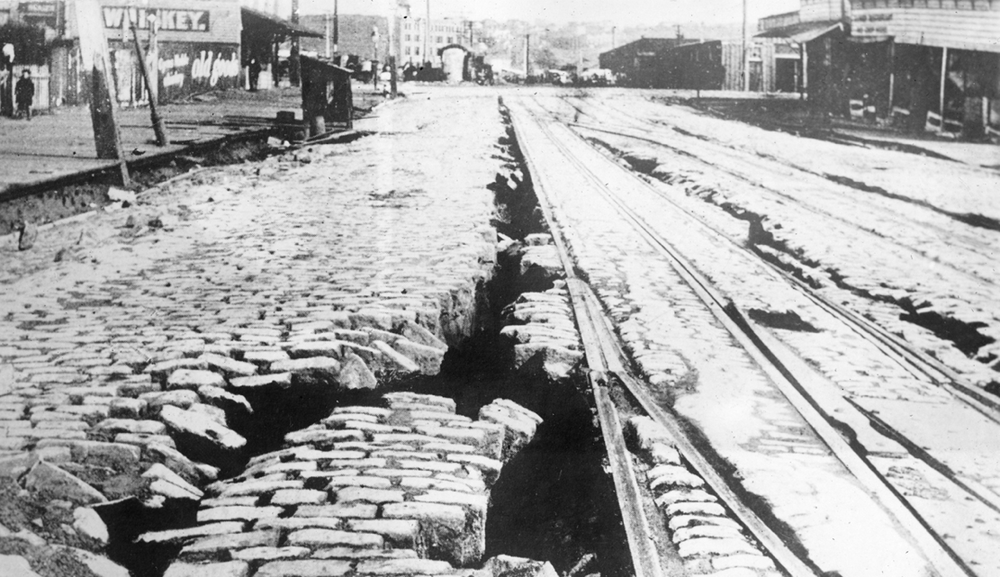In 2007 a remarkable thing happened: the poorest households in the United States – defined as sub-prime – defaulted on their mortgages and very nearly brought down the global capitalist system. Powerful banks (including Goldman Sachs) dependent on the high rates associated with risky ‘sub-prime’ loans, were on the brink of failure. Lehman’s collapsed. This was probably the first time in history that the poor had exercised such power.
In 2015 the poorest country in Europe is shaking the foundations of globalization – by threatening to democratically elect a moderate political party that wants to restructure the country’s debts.
The very hint of such an intention by the impoverished and weakened Greeks has the European political establishment and global stock markets severely rattled.
Why should this be so? Greece’s economy is tiny and almost irrelevant to the European economy, not to mention the global economy. Second, the global economy appears to be recovering. The price of a key commodity, oil, is falling and many economists regard this as welcome in that it raises global disposable income. Third, the ECB promises to soon channel a generous dose of QE to the private finance sector. Fourth, deflation, while forcing down prices, wages and incomes, effortlessly raises the value of the finance sector’s most prized asset – debt.
Fifth, and perhaps most importantly, the globalized economic model of de-regulated, offshore capitalism, rising private debt, shrinking public sector services, deflating wages and prices, coupled with the privatization of public assets, remains intact.
What’s not for global financial markets to like?
After all, and from the point of view of financial markets, politicians and central bankers have done nothing to re-structure, re-balance or manage the existing economic model more effectively. Indeed the economic model that caused the gravest financial crisis in history has been strengthened since 2009. European (and notably British) politicians from across the political spectrum do not challenge the merits or weaknesses of the model. They turn a blind eye to offshore capitalism and instead have chosen to make a fetish of domestic budget deficits.
Misled by their politicians, taxpayers are similarly focused on domestic issues: budget deficits, immigration and scandals. They are not on the streets protesting at the guarantees, subsidies and other forms of financial ballast their governments generously provide to offshore finance.
Coupled with this, central bankers dish out largesse in the form of low rates and QE to global financiers. The result is that business for bankers is better-than-usual. Now, with deflation taking hold in Europe as well as Japan, the sector can sit idly by as its biggest and most valuable asset – the vast European private debt overhang – rises effortlessly in value, relative to both incomes and prices.
This confidence is most manifest in the City of London, which is on a roll. Recruitment is expanding; the British Chancellor is working hard to defend bankers’ bonuses from attack by the EU; and financiers are pushing up rents in the City as the sector once again expands, sure of political protection.[1]
Given that so little has changed since 2007; given that capital mobility for the super-rich oligarchs remains unchallenged; and given that financial elites can expect more central bank largesse – why the latest stock market jitters over Greece’s threatened revolt?
The answer is that while the model might be dominant, the system is weighed down by costly, unpayable debt, and is therefore fragile and volatile. A poor, sovereign debtor could easily bring it tumbling down.
American sub-primers were punished for their “revolt” with brutal evictions from homes. Politicians, lawyers, economists and central bankers did not rise to their defence, but aligned with bankers. Now the global financial system is set to punish Greece, and is bolstered in that aim by heavyweight politicians and commentators from across the European Union.
They will probably succeed. The odds against Greece being treated fairly, or even humanely by European financial institutions and markets are very low indeed.
But for now, the poorest of the world are once again at the centre of the vortex – shaking the foundations of freewheeling, reckless, offshore capitalism.
End.





